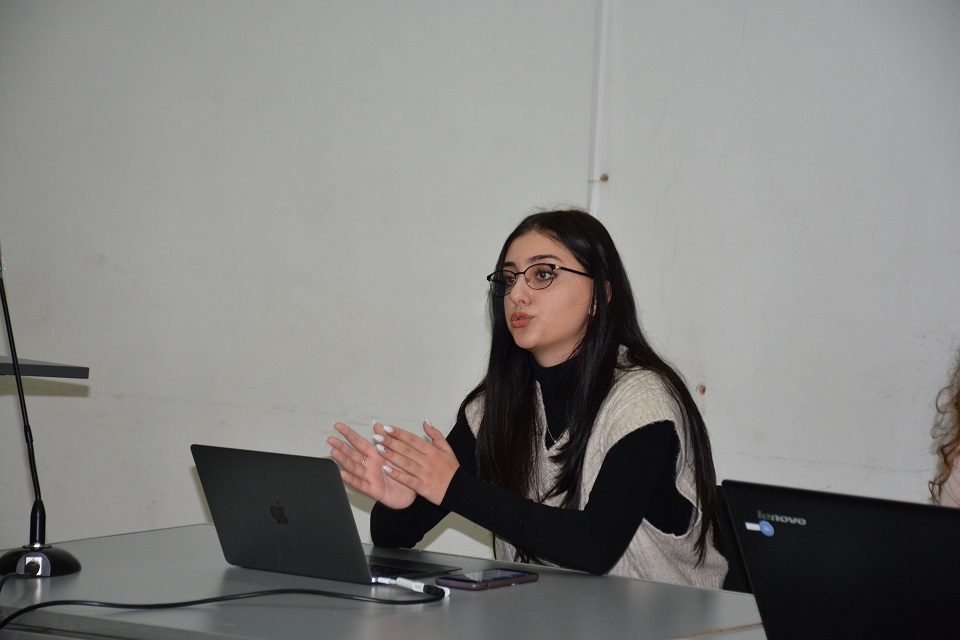Women, Peace and Security at the centre of students’ focus
Date:

UN Women continues supporting the integration of the Women, Peace and Security agenda as well as Youth, Peace and Security issues into the curricula of the higher education institutions in Georgia.
Within the framework of this support and in cooperation with UN Women, Ivane Javakhishvili Tbilisi State University and the Journalism Resource Center, for the second time already, a special section was dedicated to Women, Peace and Security as well as Youth, Peace and Security issues at the 82nd Scientific Conference held by Ivane Javakhishvili Tbilisi State University.
Six reports were presented at the conference. Among other issues, they covered such matters as the image of the President of Georgia and the reasons for forming this image, the media coverage of women’s peace initiatives in support of Ukraine, and the different forms of violence against women in Georgia.
“Providing coverage on the topic of Ukrainian women, their support and their role was the content of the topic we presented,” said conference participant Tekla Ivaneishvili. “As a result of [our] study, problems were identified, and the recommendations necessary to overcome them were highlighted.”
Luka Tughushi, another participant at the scientific conference, added: “At present, the whole world faces challenges in ensuring women’s security. These challenges are especially apparent in terms of women’s participation in politics, as the existing barriers hamper their involvement in politics. We students are the next generation. It is up to us to lay the foundation for the significant processes that will be directed towards eradicating these problems.”
The conference was organized within the framework of the UN Women project “Accelerating Implementation of the Women, Peace and Security Agenda in Georgia”, generously funded by the UK Conflict, Stability and Security Fund.